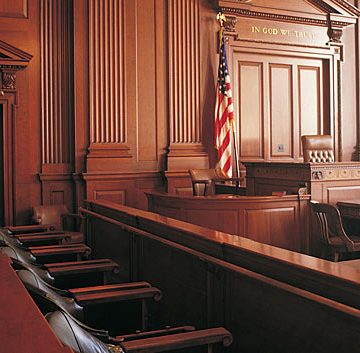
After a decision in the U. S. Court of Appeals, the online poker powerhouse PokerStars has removed its “free online poker” play to citizens who live in Washington state.
PokerStars joined several other “free play” sites in removing their action, according to the Washington State Gambling Commission. Although these sites removed the ability for Washington residents to play on their sites, the WSGC was quick to state that they did not ask the sites to stop offering the games. “We are not party to the civil case, we did not testify in the case and we did not order these sites to discontinue free online for Washington residents,” a Tweet from the WSGC stated.
The civil case they are speaking of involved a 2015 lawsuit brought by a former player, Cheryl Kater, on the online gaming site Big Fish Games and their ownership, Churchill Downs, Inc. In that case, Kater sought to recover approximately $1000 in virtual chips (the currency needed to play the games on the website) that she had bought through the site. In that suit, Kater claimed that those chips were “something of value” since they were purchasable through the site to play blackjack, slots and roulette, and thus she could be refunded the cost of her purchases.
Churchill Downs, Inc., countered with the argument that, while there was the option of buying chips to play, that it wasn’t mandatory for people to partake in their games. They presented the factor that, if a player waits for a certain amount of time, the site gives out free chips to players to get back in the game. This has long been the contention of many of the sites on Facebook that are virtual casinos, that they aren’t gambling with something that players are given.
Under the laws in Washington, the definition of gambling is “the staking or risking something of value upon the outcome of a contest of chance or a future contingent event not under the person’s control or influence, upon an agreement or understanding that the person or someone else will receive something of value in the event of a certain outcome.” This is the general law for many states regarding gambling’s definition.
The initial suit found in favor of Churchill Downs and Big Fish Poker, but Kater wasn’t willing to give up and appealed the decision to the Ninth Circuit of the U. S. Court of Appeals. After deliberation from Judge Milan D. Smith of the Ninth Circuit, Smith reversed the District Court decision in favor of Kater, stating that the buying of chips “extended the privilege of playing Big Fish Casino.” This meant that they had met the Washington guidelines of a “thing of value” and, thus, constituted illegal gambling under the Washington state guidelines.
“Without virtual chips, a user is unable to play Big Fish Casino’s various games,” Smith wrote in his opinion on the appeal. “Thus, if a user runs out of virtual chips and wants to continue playing Big Fish Casino, she must buy more chips to have ‘the privilege of playing the game.’ Likewise, if a user wins chips, the user wins the privilege of playing Big Fish Casino without charge. In sum, these virtual chips extend the privilege of playing Big Fish Casino.”
Gaming laws in Washington – and especially the laws regarding online gaming and poker – are amongst the strictest in the States of America. In 2006, Washington state became one of the first states to totally ban online gaming and poker, making it a Class C felony that could be punished with up to 10 years in prison. The Class C felony status in the state was equal to that of a child molester or a rapist. Although they passed this law, there has been no prosecutions of anyone who plays online poker or other online casino games in the state.
Online gaming companies haven’t been willing to risk violating the laws in Washington, however. Many companies blocked residents of the state from playing on their sites for money because, as publicly traded companies on the various stock markets of the financial world, they could not knowingly violate the laws of a jurisdiction without heavy punishment. While they blocked them from “pay” games, many of these same companies allowed for them to continue playing “free play” games, however.
With the ruling, PokerStars has decided it isn’t going to take any chances in violating the law, now blocking its free games from the state along with its pay product. “We are hopeful the law will be clarified and that when it is, we will be able to reinstate all Washington players at their current status,” The Stars Group said in an official statement.
The civil case now goes back to the district court with the new direction from the Court of Appeals. The question now becomes can Kater recoup money for participating in what has been adjudicated to be an illegal act. Because of the “clean hands” guideline – which means that a plaintiff must have acted without breaking the law, or “clean hands” – it is highly unlikely that the District Court will find in her favor, unless they want to interpret the law differently than the Ninth Circuit Court of Appeals has. There is also the potential that the case could be appealed to the U. S. Supreme Court, which has never ruled in an online gaming or poker case.















